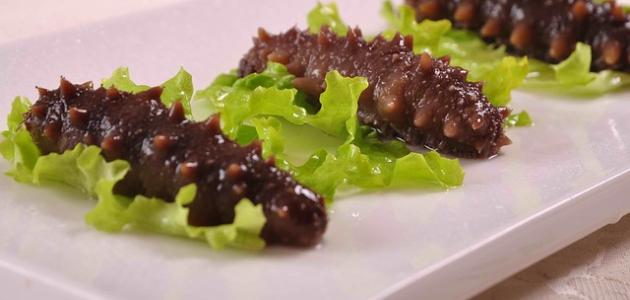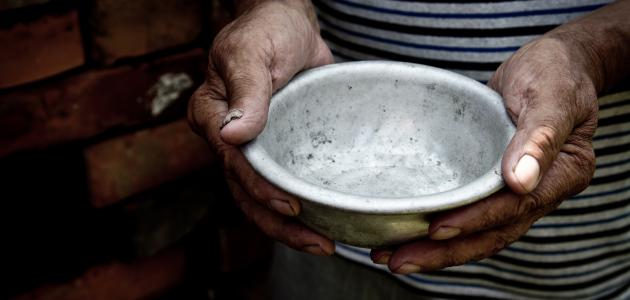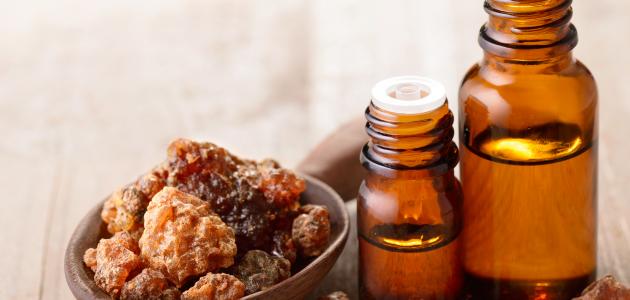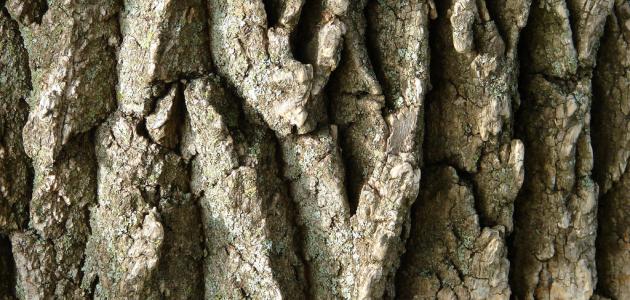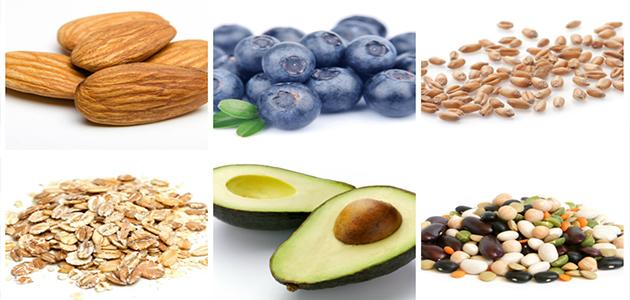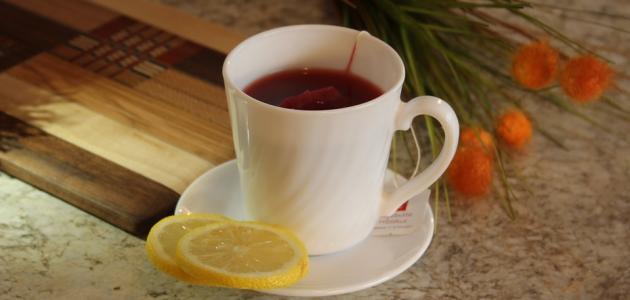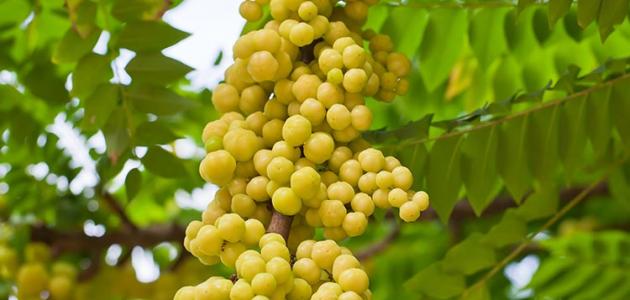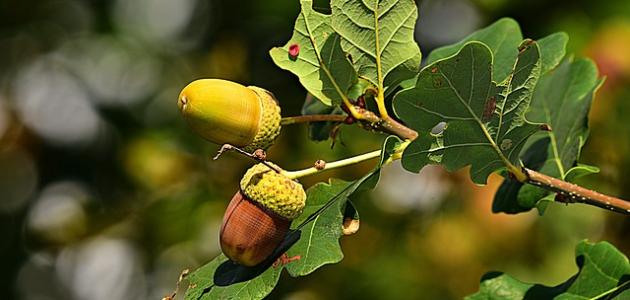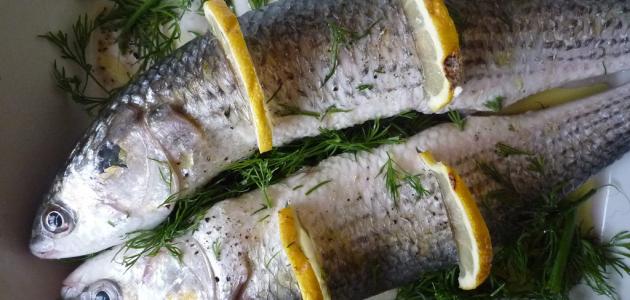Contents
Sea cucumber
Sea cucumbers are among the group of marine invertebrates that have been classified within the echinoderms belonging to the class of sea cichlids , which includes about 1250 species known to date, in addition to its nutritional value; Sea cucumber is an important source of some metabolites that have healthy properties, and it has been used as a source of food in Asia and the Middle East regions for many centuries, and sea cucumbers can be eaten raw, fried, or in the form of pickles. [1] [2]
The benefits of sea cucumbers
The sea cucumber components are from the nutrients
The following is a mention of some of the nutrients found in sea cucumbers:
- Rich Source of Protein: Sea cucumbers are a high source of protein . Most of its types contain between 41-63% of protein, and it should be noted that adding protein sources to meals helps to feel full by slowing the process of stomach emptying, and it may also help to reduce the amount of food consumed and regulate blood sugar levels. Therefore, sea cucumber and its protein can help diabetics control their blood sugar levels, and protein-rich foods can be beneficial for heart health, in addition to helping to lower blood pressure and improve bone density. [2]
- Rich source of collagen: the body wall of sea cucumbers contains about 70% of protein, which includes insoluble collagen fibers, and this collagen is one of the proteins that are found in abundance in animal tissues, which is included in many fields; As the pharmaceutical, food, and cosmetic industry. [3]
- A good source of some compounds and antioxidants: The sea cucumber contains some compounds that can have a beneficial effect on human health. From which we mention the following: [4]
- Chondroitin sulfate ; It is a substance found in human cartilage.
- Silumi fluid ; It is a compound that has a similar function to human white blood cells.
- Linoleic acid, palmitic acid, and stearic acid. It is a group of fatty acids that have a powerful antioxidant effect.
- Squalene ; It is a precursor compound that contributes to the formation of steroids .
- Tri-terpenoid ; They are a group of compounds that are believed to slow the speed of cancer cell growth.
Scientific studies on the benefits of sea cucumbers
The following is a mention of the results of some studies on the benefits of sea cucumbers:
- A laboratory study published in the journal Science indicated that sea cucumbers contain a fungi-fighting substance called steroid glycoside, which has shown high activity in mitigating various types of fungi, such as; Pathogens found in vegetables . [5]
- A preliminary study conducted on mice and published in Food Research International in 2017 found that eating a high- fat diet , as well as supplements containing frozen dried sea cucumber powder, reduces weight gain , and reduces fat levels in the body, which contributes to Reducing obesity and other disorders and improving health. [6]
- A laboratory study published in the journal Carbohydrate Polymers in 2017 indicated that a substance called fucosylated chondroitin sulfate extracted from sea cucumbers showed a blood-thinning effect . [7] On the other hand, it should be noted that it should be avoided with blood thinning drugs, or consumed in large quantities to avoid the risk of bleeding or bruising, and it is also advised to stop consuming it two weeks before surgery to reduce the risk of bleeding significantly. [4]
- A laboratory study published in the journal General Pharmacology: The Vascular System found that sea cucumbers contribute to repairing damaged cells in the body due to their fatty acid content. [8]
- A preliminary study published in Process Biochemistry in 2007, which was conducted on mice suffering from high blood pressure resulting from kidney disease, indicated that their consumption of the hydrolysis products of gelatin extracted from sea cucumbers contributed to lowering the systolic and diastolic blood pressure of these mice. [9]
- A preliminary study conducted on mice and published in the journal Carbohydrate polymers in 2012 indicated that polysaccharides extracted from a type of sea cucumber (scientific name: Apostichopus japonicus) can help combat oxidation processes , as it has been shown that it contains many compounds and antioxidants These antioxidant properties also contribute to reducing the risk of developing hyperlipidemia . [10]
- A laboratory study published in the Jundishapur Journal of Microbiology in 2014 found that the methanolic aqueous extract of one of the sea cucumbers (scientific name: Holothuria leucospilota) helps to fight bacteria . Such as Escherichia coli (scientific name: Escherichia coli), Staphylococcus aureus (scientific name: Staphylococcus aureus), Salmonella typhi and Pseudomonas aeruginosa , and others are still needed, and others To confirm this effect. [11]
- A preliminary study conducted on mice and published in the journal PloS One in 2013 indicated that sea cucumbers contain compounds that help reduce cholesterol levels in the blood . Including total cholesterol , harmful (LDL), and triglycerides, and therefore it is good in reducing dyslipidemia, but more studies are still needed to know its mechanism of action. [12]
Damage to sea cucumbers
The degree of safety of sea cucumbers
There is no information available about the degree of safety of eating sea cucumbers in general, and there is no information about the degree of safety of using it during pregnancy and breastfeeding. [13]
Precautions for using sea cucumbers
Despite the many benefits of sea cucumbers, there are some potential caveats that you should consider. The following is a mention of it: [14]
- Rash: Touching sea cucumbers can lead to rashes . This is due to its exposure to some toxins in sea water.
- Eye irritation: This is due to the irritation of the conjunctiva and the cornea, which can cause severe inflammation that may lead to vision loss in severe or untreated cases, and this is a common occurrence among divers who clean their masks in the area where the sea cucumber is present.
- Bleeding: sea cucumber has an anticoagulant effect, and therefore it should be avoided when using blood-thinning drugs. Calorfarin , and it should be noted that nutritional supplements that contain high concentrations of sea cucumbers should not be used. This is to avoid bleeding or bruising, in addition to the necessity to stop eating sea cucumbers two weeks before the date of surgery to avoid severe bleeding. [4]
References
- ↑ Mike Kareh, Rana El Nahas, Lamis Al-Aaraj, and others (2-11-2018), “Anti-inflammatory proliferative and anti -atory activities of the sea cucumber Holothuria polii aqueous extract” , SAGE open medicine , Folder 6, Page 2050312118809541. Edited.
- ^ A b Jillian Kubala (24-2-2020), " of Sea Cucumber: An Unusual Food With Health Benefits" , Www.healthline.com , Retrieved 27-4-2020. Edited.
- ↑ Siddiqui YD, Erry Arief, Tahir Noorani, and others (1-2013), “Extraction, Purification and Physical Characterization of Collagen from Body wall of Sea cucumber Bohadschia bivitatta” , Health and the Environment Journal , Issue 2, Folder 4, Page 53-65. Edited.
- ^ A b v Cathy Wong 's (29-11-2019), "The Health Benefits of Sea Of Cucumber" , Www.verywellhealth.com , Retrieved 27-4-2020. Edited.
- ↑ Shigetoshi Shimada (28-3-1969), “Antifungal Steroid Glycoside from Sea Cucumber” , Science , Issue 3874, Folder 163, Page 1462. Edited.
- ↑ Surendiran Gangadaran and Sukhinder Cheema (9-2017), “A high fat diet enriched with sea cucumber gut powder provides cardio-protective and anti-obesity effects in C57BL / 6 mice” , Food Research International , Issue 1, Folder 99, Page 799-806. Edited.
- ↑ Mohamed Mansour, Rafik Balti, Veronique Ollivier, and others (10-15-2017), “Characterization and anticoagulant activity of a fucosylated chondroitin sulfate with an unusually procoagulant effect from sea cucumber” , Carbohydrate Polymers , Folder 174, Page 760-771. Edited.
- ↑ BD Fredalina, BH Ridzwan, AA Zainal Abidin, and others (10-1999), “Fatty acid compositions in local sea cucumber, Stichopus chloronotus, for wound healing” , General Pharmacology: The Vascular System , Issue 4, Folder 33, Page 337-340. Edited.
- ↑ Yuanhui Zhao, Bafang Li, Mingyong Zeng, and others (2007), “Antihypertensive effect and purification of an ACE inhibitory peptide from sea cucumber gelatin hydrolysate” , Process Biochemistry , Issue 12, Folder 42, Page 1586-1591. Edited.
- ↑ Xin Liu, Zhenliang Sun, Miansong Zhang, and others (11-6-2012), “Antioxidant and antihyperlipidemic activities of sea cucumber apostichopus japonicus” , Carbohydrate polymers , Issue 4, Folder 90, Page 1664-1670. Edited.
- ↑ Neda Adibpour, Farhad Nasr, Abdolghani Ameri, and others (1-2014), “Antibacterial and Antifungal Activity of Holothuria leucospilota Isolated From Persian Gulf and Oman Sea” , Jundishapur Journal of Microbiology , Issue 1, Folder 7, Page e8708. Edited.
- ↑ Leticia Olivera-Castillo, Alberto Davalos, George Grant, and others (19-2013), “Diets Containing Sea Cucumber (Isostichopus badionotus) Meals Are Hypocholesterolemic in Young Rats” , PloS one , Issue 11, Folder 8, Page e79446 . Edited.
- ↑ "SEA CUCUMBER" , www.rxlist.com , (30-10-2017), Retrieved 27-4-2020. Edited.
- ↑ Charles Davis (11-3-2019), “Symptoms and Signs of Sea Cucumber Irritation , ” www.emedicinehealth.com , Retrieved 27-4-2020. Edited.
